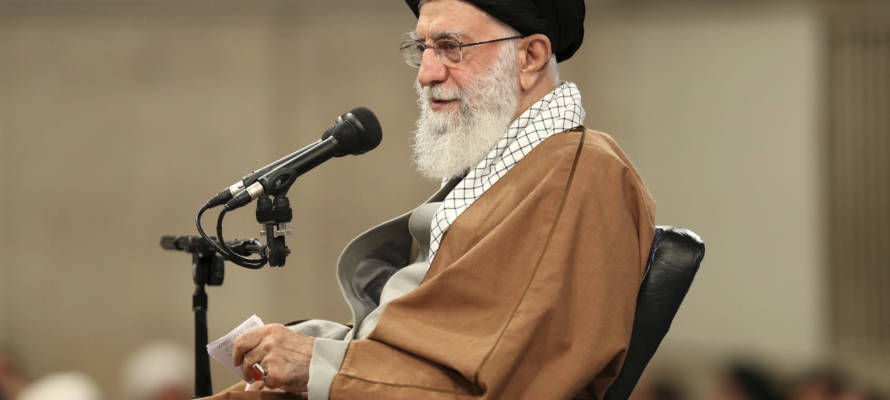Ismail Haniyeh was in Tehran for the inauguration of President Masoud Pezeshkian when he was killed.
By Joshua Marks, JNS and United with Israel
Iranian Supreme Leader Ali Khamenei has ordered a direct attack on Israel following the assassination of Hamas terror chief Ismail Haniyeh in Tehran, The New York Times reported on Wednesday.
Jerusalem has not taken responsibility for the missile strike that killed the Palestinian terror group’s “political” leader and his bodyguard early on Wednesday morning.
Hours after the attack, the Islamic Republic held an emergency meeting of its Supreme National Security Council at the supreme leader’s residence, with the participation of Quds Force commander Esmail Ghaani. Khamenei gave the order at the meeting, according to three Iranian officials, including two members of the IRGC, briefed on the order.
Iran and Hamas accused Israel of the assassination of Haniyeh, who was in Tehran for the inauguration of President Masoud Pezeshkian.
Iranian officials are in “utter shock” over the assassination, sources told Times journalist Farnaz Fassihi, “because it also delivers a huge blow to Iran’s security reputation at a time it wants to project power in the region.”
Pentagon and other U.S. officials were also surprised by Haniyeh’s elimination, and especially that it had taken place in Tehran, the Times reported. While the location of the strike forces the Iranian regime to respond, according to the report, a senior U.S. military official said that despite the security embarrassment Iran may not want to start an all-out war with Israel.
According to the report, Iranian military commanders are considering an attack similar to that they executed in mid-April, when more than 300 drones and missiles were launched at Israel in the first-ever direct attack by Iran on the Jewish state.
The drones and missiles would aim for “military targets in the vicinity of Tel Aviv and Haifa, but would make a point of avoiding strikes on civilian targets,” the Iranian officials said.
One option being considered is a coordinated attack on Israel by Iran and its regional terror proxies, including the Houthis in Yemen and militias in Iraq and Syria.
Iran’s Lebanese terror proxy Hezbollah is also a wild card, with a separate response expected for Tuesday night’s targeted killing by Israel of senior Hezbollah official Fuad Shukr in south Beirut, which was acknowledged by the Israeli military.
Top Iranian officials will meet with representatives from the regime’s regional terror proxies in Lebanon, Iraq and Yemen on Thursday to discuss the retaliation against Israel, Reuters reported, citing five sources.
An extended meeting is expected to take place in Tehran, Iranian government media reported. The meeting will be attended by representatives of the Islamic Revolutionary Guard Corps including the Corps’ Quds Force, Hamas, Palestinian Islamic Jihad, Hezbollah, Ansar Allah (the Houthis) and the Popular Mobilization Forces militia from Iraq.
Israeli Prime Minister Benjamin Netanyahu on Wednesday warned that Israel faced “challenging days” following its recent assassinations of top leaders of Iranian proxy terror groups.
“We are prepared for any scenario and we will stand united and determined against any threat. Israel will exact a very heavy price for aggression against us from whatever quarter,” he said.
Netanyahu emphasized “that the war [will] take time and require us to show patience,” stressing the importance of not caving to pressure “at home and abroad to end the war.”
“If we gave in to this pressure – we would not have eliminated senior Hamas leaders and thousands of terrorists. We would not have destroyed terrorist infrastructure and extensive Hamas underground infrastructure. They simply would have kept it. We would not be in control of the Philadelphi Corridor and the Rafah Crossing – the lifeline of Hamas by which they arm and rebuild themselves, and we would not have created the conditions that are bringing us closer to an outline that will also return our hostages, and which will allow us to achieve all of our objectives for the war: Returning all of our hostages, eliminating Hamas’s military and governing capabilities, ensuring that Gaza never again constitutes a threat to Israel, and restoring our residents securely to their homes in both the south and the north,” Netanyahu said.
